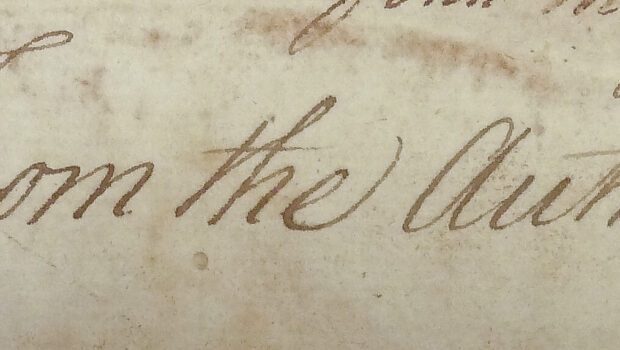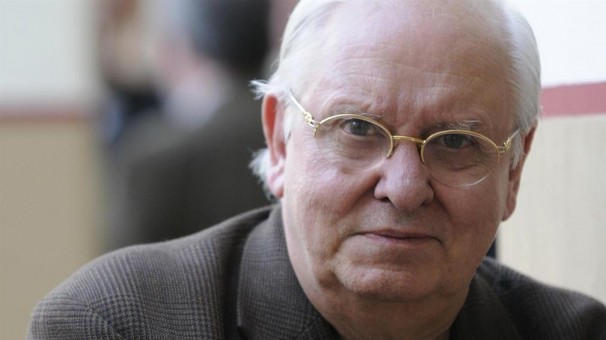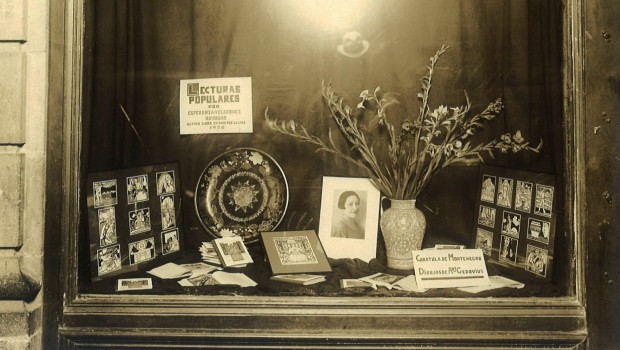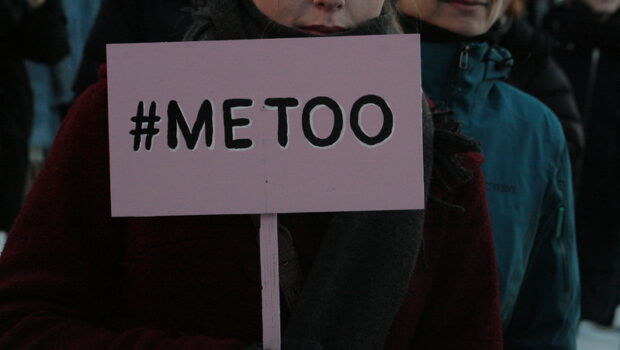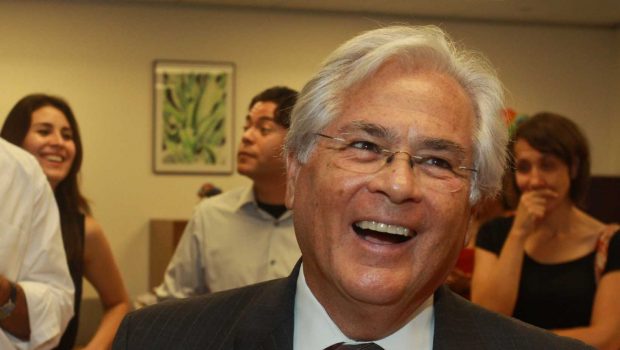Writers (and Translators) of the World…
Adriana Díaz Enciso
The other day I was about to send my translations of some poems to the online journal Asymptote, until I read in their submissions’ guidelines that they charge a fee to read any proposal. If the editors happen to like your translations and publish them, it goes without saying, you will receive no payment whatsoever.
In the United Kingdom, you must pay to take part in most competitions, which is the literal confirmation that all literary competitions are a lottery, but this is the first time that I find a magazine where you have to pay to be (perhaps) published.
During its ten years of existence, Asymptote’s work has been undoubtedly praiseworthy. I won’t take much time here to sing its praises because that’s not the subject of these notes; furthermore, its editors already do so unsurpassably in their website. What I will talk about is the scandal of such refinement in the exploitation of literary work.
I will start by reproducing the letter I wrote to the editors, because I think the debate should be public:
Dear Asymptote Editors,
I was looking at your submission’s guidance page a moment ago, planning to send you the translations of work by three Mexican poets. I was thinking of Asymptote because I admire and respect the work you do, and I’m grateful for the way you have helped to create a bridge across many cultures, many languages, many interpretations of the world.
However, I was shocked to see that there is a submission fee. This is not even for a competition! And of course, contributions aren’t paid.
You explain why you consider these painful measures necessary and do it convincingly. However, as an author and translator who has struggled financially all her life, while upholding her principles regarding literature with as much zeal as you do in Asymptote, I must say that after decades of hearing such stories I am now truly tired of being told how lucky we authors and translators can be if chosen, if featuring in some journal or other, how many doors can be open for us if we just make the small sacrifice of a) giving our work for free, b) even paying just to see if a journal may want it.
Asymptote is asking us to do both, and I really think it goes against everything Asymptote seems to stand for. I understand your reasons, but it is still the exploitation of authors and translators. And we are fed up.
Surely you must be aware of statistics such as those of the Society of Authors in the UK, about how many professional authors live with less than the minimum wage. We are constantly asked to make sacrifices just for having the chance to be read. It is blackmail, and it is wrong.
Though I admire your work enormously and truly understand the plight you’re in, an institution, an organisation, or a journal, should never, ever, be asking authors and/or translators to sacrifice their individual wellbeing on behalf of that journal, organisation, or institution. Never.
Yet it happens all the time. Everyone asks us to sacrifice our wellbeing on their behalf, telling us how wonderful it may be for us if we are willing to do so, and are lucky to be chosen. It is about time for this to change, and I think that a journal so obviously concerned with an ethical approach to literature as Asymptote should be leading that change, rather than perpetuating it.
Our work matters, our wellbeing matters, we matter.
Asymptote has indeed a convincing discourse about its noble intentions. Its mission is nothing less than to “unlock the literary treasures of the world”. In an interview for the Poetry Society of America, Lee Yew Leong, the journal’s founder and editor-in-chief, states that “The main reason we’re online stems from our commitment to social justice. Providing free access to the world’s literature—for everyone, regardless of geography, language or class—is emboldened by an online platform.”
Commitment with social justice? A publication that doesn’t pay its contributors, and which now pretends to charge them for the possibility of being published? To start with, Asymptote doesn’t pay its staff, whose work is voluntary. No doubt they learn a lot and many doors are opened to them through working in such a renowned journal, but I still find it strange that a publication committed to social justice believes that literary work is, in essence, free.
In their website they explain that they don’t pay contributors nor their staff because they want to go on offering free contents all over the world. They say that, instead, they offer visibility to translators; that part of the funds they get goes to promote their work and finance the journal’s competitions, and they quote success stories: translators who, thanks to their presence in Asymptote, have received publication contracts. I have no doubt that this laudable work is true, and I do not ignore how difficult, heroic even, is the struggle to keep alive an independent literary journal, but the core problem of the prevailing model of exploitation of intellectual work is still standing, despite the best intentions.
True, we cannot talk of capitalist exploitation proper, since, as we are informed, Lee Yew Leong himself invested $50,000 from his own pocket to start the project and has received no payment for his work for six years. Admirable, no doubt, though it would be even more if the matter were handled with some modesty and didn’t appear on the website as blackmail to justify the lack of payment to contributors. After all, it is his project. I certainly congratulate him for being able to afford the investment. Most of literary translators, I’m afraid, live in a different reality.
In Asymptote’s FAQ section we are told that if the journal ever has enough resources, it will hire an accountant, will pay its staff and contributors, in that order. That is to say, those who provide the contents are at the end of the list. Is it farfetched to think they should be at the beginning? That a publication’s project should make sure that it can pay its staff of course, but the starting point should be to find the way to remunerate the work that will fill its pages, and that if it can’t, then the project isn’t viable? Otherwise, authors or, in this case, translators, keep on being like the labourers who built the pyramids of Egypt to the glory of the Pharaohs… No, I’m sorry; the simile doesn’t work. Those labourers, as recent research shows, did receive some form of payment for their work.
However, to talk about glory makes sense. Asymptote doesn’t follow the model of capitalist exploitation in the sense that neither its founder and editor-in-chief nor its staff are earning money. Here the capital is other: it is prestige. The journal has acquired an outstanding reputation, no doubt deserved, and that prestige is the carrot it uses to attract its contributors. I’ve already talked about the stories they mention of translators whose career has flown high thanks to their presence in the magazine as a justification of their financial model. It’s a bit like those “before” and “after” pictures in cosmetics ads. Is it unfair to think the bait ignoble?
If the idea is to make available the “literary treasures of the world” in the fairest, most equitable and generous way possible, one would have thought that the value of those treasures and the human work that sustains them would be fully appreciated. Not to pay for that work is insensitive enough, but to charge to read it, promising probable prestige as a reward, seems to me dangerously close to abuse.
In Asymptote’s justification of these measures, we find an interesting paragraph: the editors understand that for many authors and translators “even these small fees may be a financial burden” and have therefore decided not to charge those who live in Africa or propose work by African authors… because now the journal is keen on increasing African presence in its pages.
I find it a most arbitrary exemption rule, dictated by the journal’s editorial interest. However commendable that interest may be, these rules don’t seem to be founded on a commitment to social justice; not even on logic. The journal’s fees may mean a financial burden for any author or translator, anywhere in the world, who lives with less than the minimum wage. Furthermore, not to pay for other people’s work is a fundamental cause of social injustice, always and everywhere. I have no words to describe what charging for considering publishing it is.
“Poetry translation isn’t paid”
I started these notes with Asymptote’s case because I’ve just found out what their submissions’ guidance is, and I still can’t manage to digest the information.
However, that journal is only an example of the constant obstacles met by authors and literary translators who seek, like all human beings, to make a living out of their work. I could write a cautionary book about my work history, similar to that of thousands and thousands of writers all over the world, for reckless children who dream of writing books when they grow up.
Today I’ll just mention one instance. For a couple of years, I’ve been translating a selection of poems by British poet David Harsent. I initially offered the book to a Mexican publisher that not only manifested its interest but committed itself to publish it. At first, it seemed that it would also be willing to look for a way to finance my work, but it didn’t. Communication with them has been close to non-existent, and the last thing I knew more than a year ago was that there was nothing they could do; in their opinion, it fell to me, and even to Harsent himself, to get the money. Other publishers have also shown interest in publishing the book, but none in finding a way to pay for my work.
As a result, I am working through the translations at a painfully slow pace, since, hard as it may be to believe it, I too have to eat and pay my rent.
I know far too well how difficult it is for independent publishers to keep alive, most of all those that publish poetry. I know that they have everything against them in the publishing market panorama, that their existence is constantly under threat, and I sincerely admire and thank them for their tenacity, but I still find puzzling the degree of defeatism with which they admit that there is no way on earth to get funding for their translators.
Even more alarming is to see how many poets repeat themselves with feeble voice the mantra “the translation of poetry isn’t paid”, their gaze lost on the cracks on the floor, with the same resignation with which we say, “we’re all going to die, one day”.
Though it goes without saying that the translation of poetry demands time and concentration, not to talk about knowledge, skill and talent, the idea of receiving a remuneration for it has become taboo; just to ask whether it’s possible is considered in terrible bad taste. If we say instead that we will do that work for free, there’s no lack of publishers accepting the offer. Those same publishers, however, don’t expect to be given as a present the paper on which they print their books, for example. If they receive a grant they celebrate it, but they don’t take it for granted that paper or printing will be for free, or, to put it more clearly, that they will get them at the expense of the effort and personal wellbeing of the paper producers or the printers. It is only poets and/or translators who are demanded such a sacrifice. Why, when it is clear that without poets and translators they wouldn’t be publishing anything, but selling blank notebooks?
Cats of the World
One evening, many years ago, I arrived by pesero to the Maxim’s de Paris, not in Paris, but in the branch the restaurant then had at Mexico City’s Presidente Hotel. My father was on a business trip in the capital and had invited me to dinner. I always got to such meetings feeling a bit like Top Cat, taking my chances to be let in even if my outfit wasn’t entirely in compliance with the venue’s etiquette, and convinced that the bill would amount more or less to the equivalent of my rent.
Towards the end of the dinner, I had the cheek to tell my father that I found his absolute lack of a support he evidently was in conditions to give, when he knew how precarious my circumstances were (I won’t dwell here on the thorniest details of the story), hurting. That’s where his immortal phrase came from: “I always told you that you would starve as a writer, but you’ve no idea how proud I am of you, and how I show you off to my friends”.
In the face of such eloquence, all I could do was to order dessert, an espresso, and a glass of port, since we were already there.
Before crying out in shock wondering how my dad could tell me something like that, and whether he didn’t see how cynical it made him appear, I will ask readers to look around and wonder if that isn’t the attitude of society in general before those exotic animals: writers and artists.
When we talk about social injustice it never crosses our mind to think of them. We worry, and with plenty of reason, about the obvious inequality between rich and poor; the low wages in many countries for teachers and medical staff; the exploitation of labourers and domestic workers; the atrocious situation of millions of immigrants and the homeless, the social problems of prostitutes… But artists? Writers? What are those whining about? They chose it! They knew that such people hardly ever earn anything. What do they do that for? Moreover, who do they think they are?
It’s as if society wanted to punish us for our temerity. That is to say: global society—and that includes a great deal of the institutions, organisations and businesses that work with culture—has about us the same immovable opinion as a conservative Guadalajara family.
This attitude goes indeed beyond all borders of race, geography, or political leanings, and is no laughing matter. In history’s most dangerous times, this contempt becomes hatred (that is, for instance, why the exterminating loathing that culture inspires in the Mexican president nowadays is so alarming).
“Who do you think you are; what are you complaining of” … That is, how dare we demand respect and a fair payment for our work. The problem is of course ancient, and it stems from the very difficult question of what art’s social function is; a question doomed to meet the wrong answer because it is utilitarian, and that is a quality alien to genuine artistic creation. The value of what artists, writers and literary translators do cannot be assayed in financial or functional terms. And yet, a society without art and literature is a dead society, essentially impoverished, stripped of human meaning.
It is clear that those of us who work on these things don’t do it for the money. If that were the aim, we would be doing something else… or we’d be the kind of artist or writer who does do it for the money and sells their soul, if they ever had it, to the devil. But it should also be clear that we are citizens and human beings as well, like everybody else, with basic needs and rights. If not even the institutions, publishers or journals dedicated to culture are capable to acknowledge such an obvious truth, we will go on being sacrificed under the excuse of an intangible greater good, or in the interest of success and prestige. Almost always somebody else’s, by the way.
One thing is to invest the work, energy and, if we have it, the money we please in our own projects, for art’s sake, as Lee Yew Leong has done in the journal Asymptote. A quite different thing is to give that work away to others who will use it for their own profit, their own projects and renown, thus perpetuating the status quo according to which that’s the way things are, and artists and authors have no right to expect it to be different. When one is very young it is easy to yield, to believe in the bait of the “visibility” we will get in return for the lack of remuneration, and in these times of unbridled urge to be in the limelight, the promise of some possible prestige may be hard to resist. We should remember, however, that what is at stake is not only the acknowledgement of our most elemental rights, but culture itself, because in such circumstances the only other alternative seems to be art or literature deliberately commercial, by which I mean, made for utilitarian purposes, obeying not the creating impulse and need but the motivation of gain, and that, we know too well, isn’t art or literature, and has never been.
When I came to London, more than twenty years ago, I rented a room in a house that had on the bathroom door a poster of the “Cats of the World”. I couldn’t resist the temptation to write, beneath the title, “Unite!”. After coming across a journal of world renown that is asking me to pay to be, perhaps, published, I wonder whether the time has come to exhort writers the same way. After all, things didn’t go altogether wrong for Top Cat and his gang.
Asymptote
El otro día estaba a punto de enviar mis traducciones de unos poemas a la revista en línea Asymptote, hasta que leí en su guía para colaboradores que la revista cobra por leer cualquier propuesta. Si tus traducciones llegan a ser del gusto de los editores y las publican, está por demás decir, no recibirás pago alguno.
En el Reino Unido, la participación en la mayoría de los concursos cuesta, volviendo literal la lotería que es todo concurso literario, pero es la primera vez que me encuentro con una revista en la que tienes que pagar para ser (quizá) publicado.
Durante sus diez años de vida, Asymptote ha realizado una labor sin duda loable. No me extenderé aquí en cantar sus glorias porque no es el tema de estas notas, y además sus editores lo hacen ya inmejorablemente en su sitio web. De lo que voy a hablar es del escándalo de este refinamiento en la explotación del trabajo literario.
Empiezo por reproducir la carta que escribí a los editores, pues creo que el debate debe ser público:
Estimados editores de Asymptote:
Hace un momento estaba viendo su página de guía para propuestas, con la intención de enviarles las traducciones de obra de tres poetas mexicanos. Pensé en Asymptote porque admiro y respeto su trabajo, y agradezco la forma en que han ayudado a crear un puente entre muchas culturas, muchos idiomas, muchas interpretaciones del mundo.
Sin embargo, me quedé estupefacta al ver que hay que pagar una cuota para hacer propuestas. ¡No se trata ni siquiera de un concurso! Y por supuesto, las colaboraciones no se pagan.
Explican por qué consideran necesarias estas dolorosas medidas, y lo hacen de manera convincente. No obstante, como una autora y traductora que ha batallado económicamente toda su vida defendiendo sus principios literarios con el mismo celo que ustedes lo hacen en Asymptote, debo decir que tras décadas de escuchar semejantes historias estoy ya de verdad cansada de que me digan lo afortunados que podemos ser autores y traductores si somos elegidos, si aparecemos en una u otra revista, cuántas puertas se nos abrirán si tan solo hacemos el pequeño sacrificio de: a) dar nuestro trabajo gratis, b) pagar incluso nada más para ver si alguien, quizá, lo quiere.
Asymptote nos pide hacer ambas cosas, y de verdad pienso que esto va en contra de todo lo que la revista aparenta representar. Entiendo sus motivos, pero esto sigue siendo la explotación de autores y traductores. Y estamos hartos.
Con seguridad deben conocer estadísticas como las de la Society of Authors en el Reino Unido, sobre cuántos autores profesionales viven con menos del salario mínimo. Constantemente se nos pide que hagamos sacrificios para tener la oportunidad de que nos lean. Eso es chantaje, y está mal.
Aunque admiro mucho su trabajo y realmente entiendo la difícil situación en que se encuentran, una institución, organización o publicación no debería, nunca, pedir a autores y/o traductores que sacrifiquen su bienestar personal en beneficio de esa publicación, organización o institución. Jamás.
Sin embargo, sucede todo el tiempo. Todos nos piden que sacrifiquemos nuestro bienestar por ellos, diciéndonos lo maravilloso que será para nosotros si estamos dispuestos a hacerlo y tenemos la suerte de que nos elijan. Es hora de que cambie esta situación, y creo que una publicación tan evidentemente preocupada por un enfoque ético de la literatura como lo es Asymptote debería estar a la cabeza de ese cambio, en lugar de perpetuarlo.
Nuestro trabajo importa, nuestro bienestar importa, nosotros importamos.
En efecto, Asymptote tiene un discurso convincente sobre sus nobles aspiraciones. Su misión es, dicen, ni más ni menos que “liberar los tesoros literarios del mundo”. En una entrevista para la Poetry Society of America, el fundador y jefe de redacción de la publicación, Lee Yew Leong, afirma que “el principal motivo por el que estamos en línea se deriva de nuestro compromiso con la justicia social. Proporcionar libre acceso a la literatura mundial —para todos, sin importar el país, idioma o clase— es algo que alienta una plataforma en línea.”
¿Compromiso con la justicia social? ¿Una publicación que no paga a sus colaboradores, y que ahora pretende cobrarles por la posibilidad de ser publicados? De entrada, Asymptote no paga a su personal, cuyo trabajo es voluntario. Sin duda aprenden mucho y se les abren muchas puertas al trabajar en una revista tan conocida, pero me sigue pareciendo extraño que una publicación comprometida con la justicia social crea que el trabajo literario es, en esencia, gratuito.
En su sitio web explican que no pagan a colaboradores ni a su equipo porque quieren seguir ofreciendo contenido gratuito en todo el mundo. Dicen que a cambio ofrecen visibilidad a los traductores; que parte de los fondos recaudados es destinada a promover su trabajo y a financiar los concursos de la revista, y citan historias de éxito: traductores que gracias a su presencia en Asymptote han obtenido contratos de publicación. No tengo duda de que esta labor encomiable es cierta, ni tampoco ignoro lo difícil, heroica incluso, que es la lucha por mantener viva una publicación literaria independiente, pero el problema central del modelo de explotación del trabajo intelectual imperante sigue en pie, pese a las mejores intenciones.
Cierto, no podemos hablar de explotación capitalista propiamente dicha porque, como se nos aclara, el mismo Lee Yew Leong invirtió $50,000 dólares de su propio bolsillo para echar a andar el proyecto y durante seis años no ha recibido pago alguno por su trabajo. Admirable, es cierto, aunque lo sería aún más si el asunto se manejara con modestia y no apareciera en el sitio web como un chantaje para justificar la falta de pago a los colaboradores. Después de todo, es su proyecto. Yo sin duda lo felicito por poderse permitir la inversión. La mayoría de los traductores literarios, me temo, habitamos otra realidad.
En la sección de preguntas frecuentes de Asymptote se nos dice que, si algún día la publicación llega a tener suficientes recursos, contratará a un contador, pagará a su personal y a los colaboradores, en ese orden. Es decir, quienes proporcionan el contenido están al final de la lista. ¿Es descabellado pensar que tendrían que estar al principio? ¿Que un proyecto de publicación debe asegurarse de que puede pagar, por supuesto, a su personal, pero que el punto de partida debe ser buscar la forma de que el trabajo que llenará sus páginas podrá ser remunerado, y que si no es así, el proyecto no es viable? De otra forma, los autores o, en este caso, traductores, siguen siendo como los peones que construyeron las pirámides de Egipto para gloria de los faraones… no, perdonen, el símil no funciona; dichos peones, según revelan recientes investigaciones, sí recibían alguna forma de pago por su trabajo.
Hablar de la gloria, sin embargo, tiene sentido. Asymptote no sigue el modelo de explotación capitalista en el sentido de que ni su fundador y jefe de redacción, ni su personal, están ganando dinero. Aquí el capital es otro: es el prestigio. La publicación ha adquirido una magnífica reputación, sin duda merecida, y es ese prestigio la zanahoria que utiliza para atraer a sus colaboradores. Ya he mencionado las historias que citan de traductores cuya carrera ha alcanzado altos vuelos gracias a su aparición en la revista para justificar su modelo financiero. Es un poco como eso retratos de “antes” y “después” en los anuncios de cirugía plástica. ¿Es injusto pensar que el señuelo es innoble?
Si la idea es la difusión de “los tesoros literarios del mundo” de la manera más equitativa, justa y generosa posible, sería de esperarse que se apreciara cabalmente el valor de esos tesoros y el trabajo humano que los sustenta. No pagar por dicho trabajo ya es bastante insensible, pero cobrar por leerlo, prometiendo un probable prestigio como recompensa, me parece que se va aproximando al abuso.
En la justificación de esta medida por parte de Asymptote encontramos un párrafo interesante: los editores entienden que para muchos autores y traductores “incluso estas pequeñas cuotas pueden significar una carga financiera”, por lo que han decidido dejar exentos de pago a quienes vivan en África o presenten obra de autores africanos… porque ahorita a la revista le importa aumentar en sus páginas la representación africana.
Me parece una regla de exención de lo más arbitraria, dictada por el interés editorial de la revista. Por muy estimable que sea dicho interés, sus reglas no parecen tener como fundamento el compromiso por la justicia social; ni siquiera la lógica. Sus cuotas pueden significar una carga financiera para cualquier autor o traductor, en cualquier parte del mundo, que viva con menos del salario mínimo. Más aún: no pagar por el trabajo de otros es una causa primordial de la injusticia social, siempre y en todo lugar. No tengo palabras para describir lo que es cobrar por considerar publicarlo.
“La traducción de poesía no se paga”
Inicié estas notas con el caso de Asymptote porque apenas hace unos días me enteré de cuáles son sus requisitos para recibir propuestas, y todavía no logro digerir la información.
Sin embargo, dicha publicación es solo un ejemplo de los obstáculos constantes que se les presentan a escritores y traductores literarios que buscan, como todo ser humano, vivir de su trabajo. Podría escribir todo un libro aleccionador con mi historia laboral, similar a las de miles y miles de escritores en todo el mundo, para niños insensatos que sueñen con escribir libros cuando sean grandes.
Hoy mencionaré nada más un episodio. Llevo un par de años traduciendo una selección de poemas del poeta británico David Harsent. El libro lo ofrecí inicialmente a una editorial mexicana que no solo manifestó su interés, sino que se comprometió a publicarlo. Al principio, parecía que estaría también dispuesta a buscar financiamiento para mi trabajo, pero no lo hizo. La comunicación con los editores ha sido casi nula, y lo último que supe hace ya más de un año es que ellos no podían hacer nada; que, en su opinión, me correspondía a mí, e incluso al mismo Harsent, conseguir el financiamiento. Otras editoriales han mostrado también interés en publicar el libro, pero ninguno en buscar la forma de pagar por mi trabajo.
Como resultado, avanzo en las traducciones a un paso penosamente lento, pues, aunque cueste creerlo, yo también tengo que comer y pagar renta.
Sé bien lo difícil que es para las editoriales independientes mantenerse vivas, sobre todo para las que publican poesía. Sé que tienen todo en contra en el panorama del mercado editorial actual, que su existencia está constantemente amenazada, y sinceramente admiro y agradezco su tesón, pero me sigue pareciendo desconcertante el grado de derrotismo con que admiten que no hay forma sobre la tierra de conseguir financiamiento para sus traductores.
Más alarmante aún es ver cómo incluso muchos poetas repiten con voz débil el mantra “la traducción de poesía no se paga”, la mirada perdida en las grietas del piso, con la misma resignación con que decimos “todos nos vamos a morir, un día”.
Aunque no hace falta decir que la traducción de poesía requiere de tiempo y concentración, por no hablar de conocimiento, destreza y talento, la idea de ser remunerado por ello se ha convertido en tabú; nada más preguntar si es posible parece considerarse de pésimo gusto. Si decimos, en cambio, que haremos el trabajo gratis, no falta quién acepte la oferta. Sin embargo, esos mismos editores no esperan que les regalen, por ejemplo, el papel en que imprimen sus libros. Si consiguen un subsidio lo celebran, pero no dan por sentado que el papel o la impresión serán gratuitos o, para decirlo con mayor claridad, que los obtendrán a costa del esfuerzo y el bienestar personal de los productores de papel o los impresores. Es solo a los poetas y/o traductores a los que se les exige semejante sacrificio. ¿Por qué, cuando está claro que sin poetas y traductores no estarían publicando nada, sino vendiendo cuadernos en blanco?
Gatos del mundo
Una noche, hace muchos años, llegué en pesero al restaurante Maxim’s de Paris, pero no en París, sino en la sucursal que entonces tenía en el Hotel Presidente de la Ciudad de México. Mi papá estaba de viaje de negocios en la capital y me había invitado a cenar. A esas invitaciones yo llegaba siempre sintiéndome un poco como Don Gato, jugándomela a que me dejaran entrar aunque mi indumentaria no fuera del todo acorde con la etiqueta del lugar, y convencida de que la cuenta sería más o menos el equivalente de lo que yo pagaba de renta.
Al final de la cena tuve el atrevimiento de decirle a mi papá que encontraba hiriente su absoluta falta de un apoyo que evidentemente estaba en condiciones de brindar, cuando sabía cuán precarias eran mis circunstancias (no entraré aquí en los detalles más escabrosos de la historia). De ahí salió su frase inmortal: “Yo siempre te dije que como escritora te ibas a morir de hambre, pero no sabes lo orgulloso que estoy de ti, y cómo te presumo con mis amigos”.
Ante tanta elocuencia, no me quedó más que pedir postre, un café expreso y un oporto, ya que estábamos ahí.
Antes de exclamar, escandalizados, que cómo se le ocurrió a mi padre decirme una cosa así, y preguntarse si no se daba cuenta del cinismo que exhibía, pido a los lectores que miren alrededor y se pregunten si no es esa la actitud de la sociedad en general ante esos exóticos animales, los artistas y los escritores.
Cuando hablamos de injusticia social nunca nos cruza por la cabeza pensar en ellos. Nos preocupa, y con mucha razón, la desigualdad obvia entre ricos y pobres; el bajo sueldo en muchos países de maestros y personal médico; la explotación de obreros y trabajadoras domésticas; la situación atroz de millones de inmigrantes y de todas las personas sin vivienda, los problemas sociales de las prostitutas… ¿Pero los artistas? ¿Los escritores? ¿Y esos de qué se quejan? ¡Ellos lo eligieron! Ya sabían que esa gente casi nunca gana nada. ¿Quién les manda? Y además, ¿quiénes se creen?
Es como si la sociedad quisiera castigarnos por nuestra osadía. Es decir: la sociedad global, incluida incluso buena parte de las instituciones, organizaciones y negocios dedicados a la cultura, tiene de nosotros la misma opinión inamovible que una familia conservadora de Guadalajara.
Esta actitud sí que logra abolir fronteras de raza, geografía o posturas políticas, y no es cosa de risa. En los momentos más peligrosos de la historia este desprecio se convierte en odio (es por eso, por ejemplo, que en México alarma tanto el aborrecimiento exterminador que despierta la cultura en el actual presidente.)
“Ustedes quiénes se creen que son; de qué se quejan”… Es decir, cómo nos atrevemos a exigir respeto y un pago justo por nuestro trabajo. El problema es, por supuesto, antiquísimo, y nace de la pregunta tan difícil de contestar de cuál es la función social del arte; una pregunta destinada a dar con la respuesta equivocada porque es utilitaria, cualidad ajena a la genuina creación artística. El valor de lo que artistas, escritores y traductores literarios hacemos no se aquilata en términos financieros o funcionales. Y sin embargo, una sociedad sin arte y sin literatura es una sociedad muerta, esencialmente empobrecida, despojada de su significado humano.
Está claro que quienes nos dedicamos a esto no lo hacemos por el dinero. Si así fuera, nos dedicaríamos a otra cosa… o seríamos el tipo de artista o escritor que sí lo hace por el dinero y le vende el alma, si es que alguna vez la tuvo, al diablo. Pero debería estar claro también que somos ciudadanos, seres humanos como todos los demás, con necesidades y derechos básicos. Si ni siquiera las instituciones, editoriales o publicaciones que se dedican a la cultura son capaces de reconocer una verdad tan obvia, seguiremos siendo sacrificados con el pretexto de un intangible bien mayor, o en aras del triunfo y el prestigio. Casi siempre ajenos, por cierto.
Una cosa es invertir el trabajo, energía y, si lo tenemos, dinero que nos dé la gana en nuestros propios proyectos, por puro amor al arte, como lo ha hecho Lee Yew Leong en la revista Asymptote. Otra cosa muy distinta es regalar ese trabajo a otros que lo aprovecharán para su propio beneficio, sus propios proyectos y su renombre, perpetuando así el statu quo según el cual eso es lo que hay, y los artistas y escritores no tenemos derecho de esperar que sea distinto. Cuando se es muy joven es fácil ceder, creer en el señuelo de la “visibilidad” que obtendremos a cambio de la falta de remuneración, y en estos tiempos de protagonismo desaforado la promesa de posible prestigio puede ser difícil de resistir. Habría que recordar, no obstante, que lo que está en juego es no solo el reconocimiento de nuestros derechos más elementales, sino la cultura misma, porque en semejantes circunstancias la única otra alternativa parece ser el arte o la literatura deliberadamente comerciales; es decir, creados con fines utilitarios, obedeciendo no al impulso y necesidad creadores sino a la motivación de la ganancia, y eso, ya lo sabemos, no es arte ni es literatura, ni lo ha sido jamás.
Cuando llegué a Londres, hace ya más de veinte años, rentaba un cuarto en una casa que tenía pegado, en la puerta del baño, un póster de los “Gatos del Mundo”. No pude resistir la tentación de escribir debajo del título: “Uníos”. Luego de tropezarme con una publicación de renombre mundial que me pide que pague por ser, quizá, publicada, me pregunto si no habrá llegado el momento de exhortar de la misma forma a los escritores. Después de todo, las cosas no le iban del todo mal a Don Gato y su pandilla.
 Adriana Díaz-Enciso es poeta, narradora y traductora. Ha publicado las novelas La sed, Puente del cielo, Odio y Ciudad doliente de Dios, inspirada en los Poemas proféticos de William Blake; los libros de relatos Cuentos de fantasmas y otras mentiras y Con tu corazón y otros cuentos, y seis libros de poesía. Su más reciente publicación, Flint (una elegía y diario de sueños, escrita en inglés) puede encontrarse aquí.
Adriana Díaz-Enciso es poeta, narradora y traductora. Ha publicado las novelas La sed, Puente del cielo, Odio y Ciudad doliente de Dios, inspirada en los Poemas proféticos de William Blake; los libros de relatos Cuentos de fantasmas y otras mentiras y Con tu corazón y otros cuentos, y seis libros de poesía. Su más reciente publicación, Flint (una elegía y diario de sueños, escrita en inglés) puede encontrarse aquí.
©Literal Publishing. Queda prohibida la reproducción total o parcial de esta publicación. Toda forma de utilización no autorizada será perseguida con lo establecido en la ley federal del derecho de autor.


